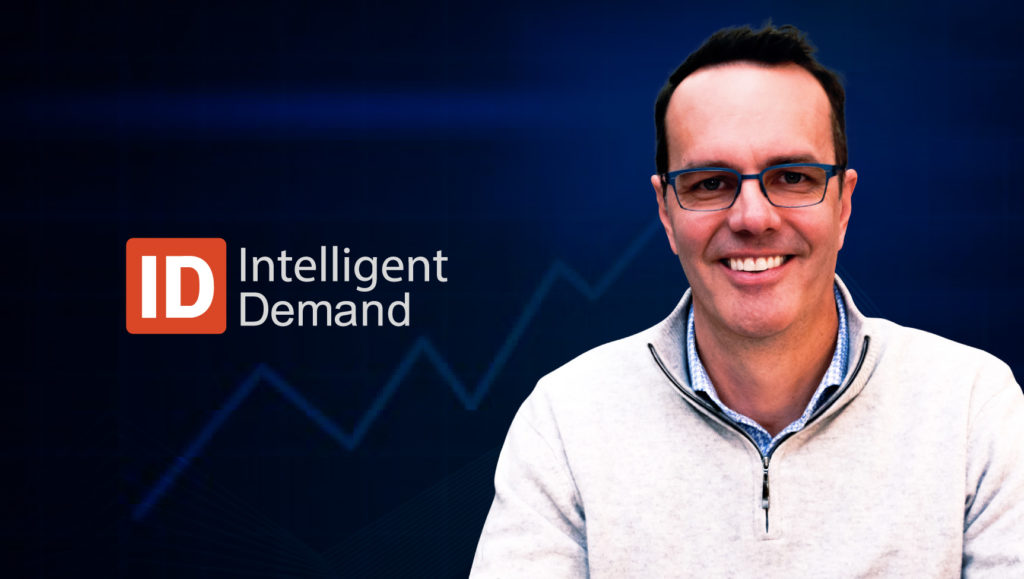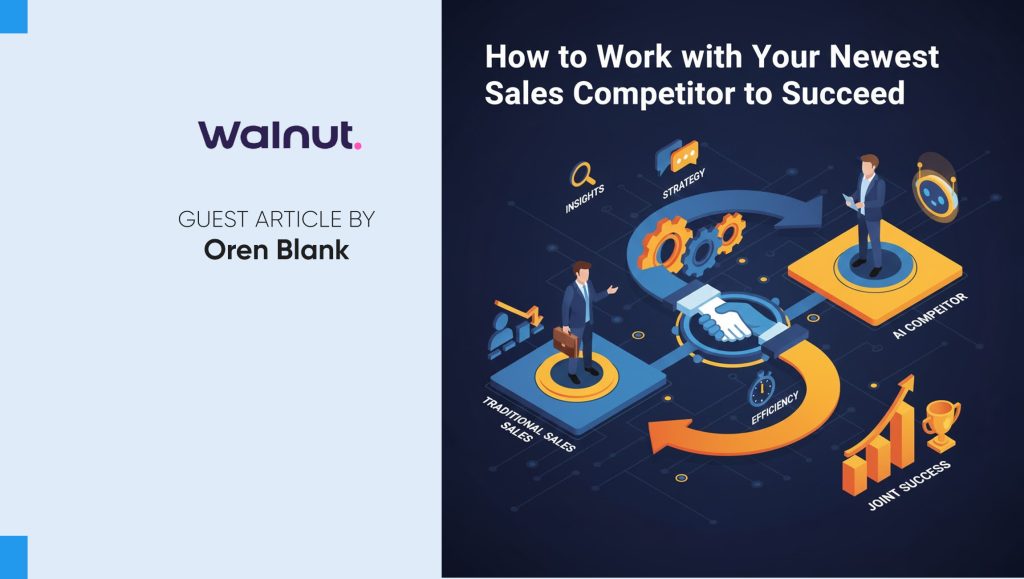You have donned many hats in the span of your career with big brands! How would you best describe your current move to Intelligent Demand?
It’s an exciting time to be a revenue leader for any B2B company. Sales, Marketing, Business Development, and Customer Success functions all have access to more technology, data, and channels than ever before. I joined Intelligent Demand because I want to leverage my knowledge and experience with emerging and disruptive revenue strategies to make a difference in the entire B2B ecosystem.
Are Sales and Marketing functions as siloed today as they were a decade ago? If not, what brought about this change?
In some companies, yes, and in other companies, no. Sales and Marketing alignment is a phrase that’s thrown around a lot but most companies I’ve worked with don’t have a strong enough definition of what that means to them or a plan for achieving specific goals around that. In my experience, Sales and Marketing alignment has different levels of maturity. For example, agreeing on what constitutes a qualified lead or target account is a form of alignment, but that’s very basic maturity. Intelligent Demand has a methodology for driving Sales and Marketing alignment starting with the basics and growing to a high level of maturity.
Recommended: SalesTech Interview With Adam Mergist, Chief Sales Officer At Clearlink
What is that one significant change in the automation industry that you can tell us about?
Marketing used to be the only function that would automate communications with prospects and customers. Today, sales and business development reps are setting up nurture programs using platforms such as Outreach, SalesLoft and Yesware, and customer success managers are setting up automated emails and triggered outreach campaigns using platforms such as Gainsight. It’s important for revenue leaders to have an integration mindset so that the customer journey isn’t fragmented across all these potentially siloed and automated touchpoints.
As a brand, Intelligent Demand is a blend of Sales as well as Marketing capabilities. Which among these two functions would you prioritize?
I prioritize customer experience and the resulting revenue implications of that experience as a function, and then I tend to think of Marketing and Sales as different flavors of the same customer experience or journey. Talking to a salesperson is one type of experience and watching a video or reading customer stories is another type of experience. Everything that touches the customer should ideally be complementary so that customers feel like they are working with one company and getting value from every interaction.
How has ABM become such a hot technology with Sales and Marketing communities? Does ABM’s capability bypass all its predecessors?
B2B marketers have been focusing on accounts and segments for a long time, but I think ABM quickly became hot for two reasons. First, technology innovators like Chris Golec from Demandbase started to innovate and invent better ways to engage with people who work at specific companies at scale. Second, traditional demand generation tactics stopped working because most markets and digital channels are saturated with content, competition, substitutes. I do think ABM’s new capabilities bypass all predecessors, but those capabilities aren’t rooted in a specific technology. Those capabilities come from the effective use of integrated strategy, services, talent, operations, technology, data, and especially prioritization of resources.
Also Read: SalesTech Interview With Brian Howe, Alliances Director At Skynamo
What would you say is/was your most complex assignment as a change agent?
One customer I worked with needed to create an ABM strategy that worked across multiple business units and product categories. The challenge was that every business unit could sell something to any of their target accounts and there were no salespeople who were able to talk about all of the solutions across all of the business units. We embarked on a company-wide initiative to essentially train and enable all the sales teams inside of each business unit to understand a holistic value proposition while preserving their ability to pitch their specific product lines in concert with other business units through a centralized deal desk. The result was a marketing strategy that could talk about a unified value proposition and a sales strategy that could assemble the right solution for an entire account without competing with other business units.
What do you personally find the hardest in the Sales-Marketing-Business development trinity?
There are trade-offs when it comes to revenue growth at scale. Companies always want lots of high-quality leads at a low cost. You can’t have the highest lead quality, highest lead quantity, and lowest lead cost all at the same time. If you focus on high quantity and low cost, Sales will be forced to qualify poor quality leads. If you focus on high quality and low cost, Sales will be forced to prospect for new leads. If you focus on high quality and high quantity, Sales will be forced to reduce headcount or grow headcounts more slowly.
Can Intelligent Demand’s Solutions work in conjunction with other products via integrations or otherwise?
Sales teams spend a lot of money on technology, so as you can imagine we use a long list of tools on behalf of our clients. But, we’re not a technology-focused agency, we’re a solution-focused agency. When our clients have problems or see opportunities, we find a path to the final result that combines services and technology in a way that produces the desired result faster and more intelligently. The key is making it all work together with an integrated strategy, not necessarily by choosing a best-of-breed technology and trusting that the technology will do all the work.
Recommended: Sales Call Analytics Is The Difference Between Winning And Losing Customers
Is AI and Sales equivalent to apples and oranges?
Not really. AI isn’t a replacement for salespeople. AI is best used to make salespeople much more productive. For example, a good business development rep may conduct a lot of research on a target account before sending an email in order to make the email more relevant. AI can do the same research the rep would have done, only AI can do it much faster and more accurately for hundreds of reps and thousands of companies at a time. That way, reps can focus their time and energy on building out multiple relationships within their target accounts instead of only one or two.
Could you name some apps/tools that you use in your day-to-day life?
I can’t live without Google. I use just about everything in their full suite of products every day. I also love smart productivity tools such as x.ai for setting appointments and FullContact for contact management and enrichment.
Recommended: SalesTech Interview With Michael Cibelli, SVP of Sales at ZaiLab
If not into Sales Tech, what would be your alternate career choice?
I would probably be a starving musician or a struggling writer who creates really interesting things that lots of people appreciate but nobody wants to buy. I think my current profession is the only thing I’m good at that has any monetary value to the world.
Whose answers to these questions would like to read (from the industry)?
Eric Anderson, CRO at Optimizely.
Thank You, John, for answering all our questions. We hope to see you again, soon.
Intelligent Demand is an integrated revenue growth agency that helps our clients find, keep and grow relationships with their ideal customers. Intelligent Demand (ID) is a B2B revenue growth agency. Companies trust us to help them find, keep and expand relationships with their ideal customers across the end-to-end revenue process. There aren’t too many agencies who sign up for measurable revenue impact. We emphatically do. We help B2B revenue leaders overcome the obstacles that stand in the way of faster, more effective revenue growth. We provide a proven set of revenue performance solutions and supporting services delivered by our full service team of expert specialists. The end result: revenue leaders drive measurable revenue growth with less stress and risk, careers flourish, and companies get a higher return on their marketing, sales and customer success investments.
John Arnold is VP of Marketing, Sales, and Business Development at Intelligent Demand. John and his team are responsible for showing prospective ID clients how they can turn their revenue visions into reality using innovative strategies, technologies, media and services.
John is a well-respected revenue change agent and authority on Account-Based Marketing and B2B strategy. His pragmatic approach to the evolving B2B revenue landscape combined with his real-world experience working with some of the world’s largest B2B brands and high-growth startups make him a great addition to ID’s revenue transformation mindset.






















